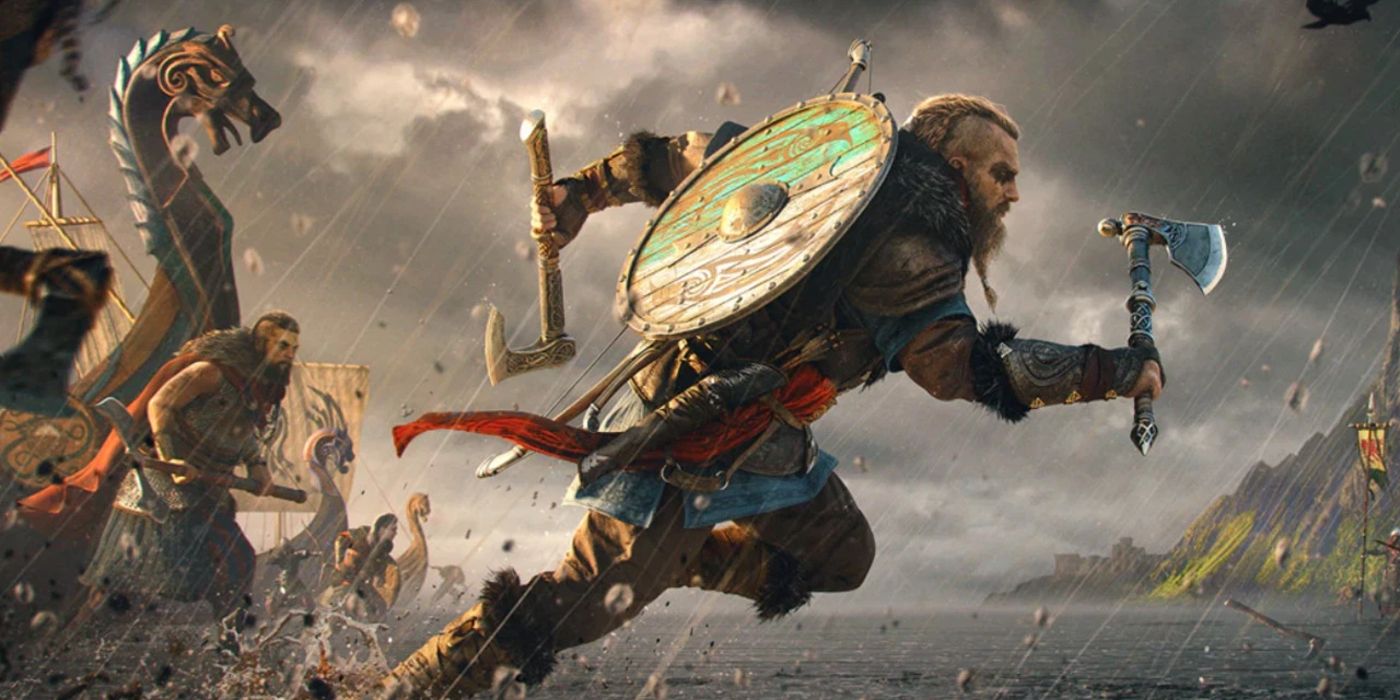Ubisoft's Assassin’s Creed Valhalla paints a vivid picture of Viking culture, but is it an accurate one? No title in the Assassin’s Creed series has ever aimed for gritty realism. From its fantastical sci-fi present day setting to its increasing reliance on mythology, historical accuracy has frequently been sacrificed for fun, pulpy gameplay. This time, though, the history behind the game is even more intriguing than usual.
Even the most fanciful Assassin’s Creed games contain a lot of history. Developer Ubisoft has always taken great care to research the varied historical settings of the Assassin’s Creed franchise for the sake of immersion, and things are no different for the twelfth installment. The warring cultures vying for the ominous landscapes of 9th century AD Britain are realized with meticulous attention to detail, flyting "rap battles" and all. So while many liberties have been taken in translating Norse culture into a AAA action title, some surprising elements of Assassin’s Creed Valhalla’s world are grounded in history.
Were there really female Vikings? Ubisoft caused a bit of a stir when they announced that the player character Eivor in Assassin’s Creed Valhalla could be either a man or a woman - or both. Sadly, the inclusion of female characters in video games as more than objects to be rescued is often controversial regardless of setting, but the idea of a non-male Viking warrior struck some commenters as historically implausible. Was this feature motivated more by wishful thinking and market research than a dedication to realizing actual Norse culture? In fact, while the term “vikingar” referred only to men, there is strong evidence that some women served as warriors on Viking raids. And though, like all medieval European cultures, Scandinavia was relatively patriarchal, Viking societies were shockingly equal for their time.
How Realistic Assassin's Creed Valhalla Is
Of course, not everything in Assassin’s Creed Valhalla is realistic. And for that matter, not everything about Viking culture was so progressive. In Assassin’s Creed Valhalla, players lead Eivor in colonizing Britain to save their clan. On their mission, Eivor subdues native Anglo-Saxons and does battle with less honorable Viking clans to ultimately settle the island for their people and their faith. This sympathetic perspective portrays Vikings in a positive light suitable for a fun video game, but leaves out a lot of less savory history.
This shouldn’t come as a shock, but most Vikings were not particularly good to the people they conquered. It’s true that there were distinct Viking societies, like the Great Heathen Army headed by the real historical figure Ragnar Lothbrok, who competed for the territory of Anglo-Saxons, like the equally-real Alfred the Great. However, these conflicts were far more brutal than they are depicted in Assassin’s Creed Valhalla. While Viking society centered on faith and family, Norse raiders were often moved out of simple greed and the opportunity to assault their captives and not out of a sense of moral duty - except perhaps to the bloodthirsty Odin. Simply put, committing atrocities was in the Viking job description.
Eivor’s tale strikes a careful balance between crafting a historically accurate world and telling a compelling story with modern sensibilities. Similarly, Ubisoft had to manage striking a dark and mysterious tone without veering so far into the cruelty of Viking culture that it stops being fun. While not perfectly historical, Assassin’s Creed Valhalla captures the thrilling, terrifying spirit of Vikings.


